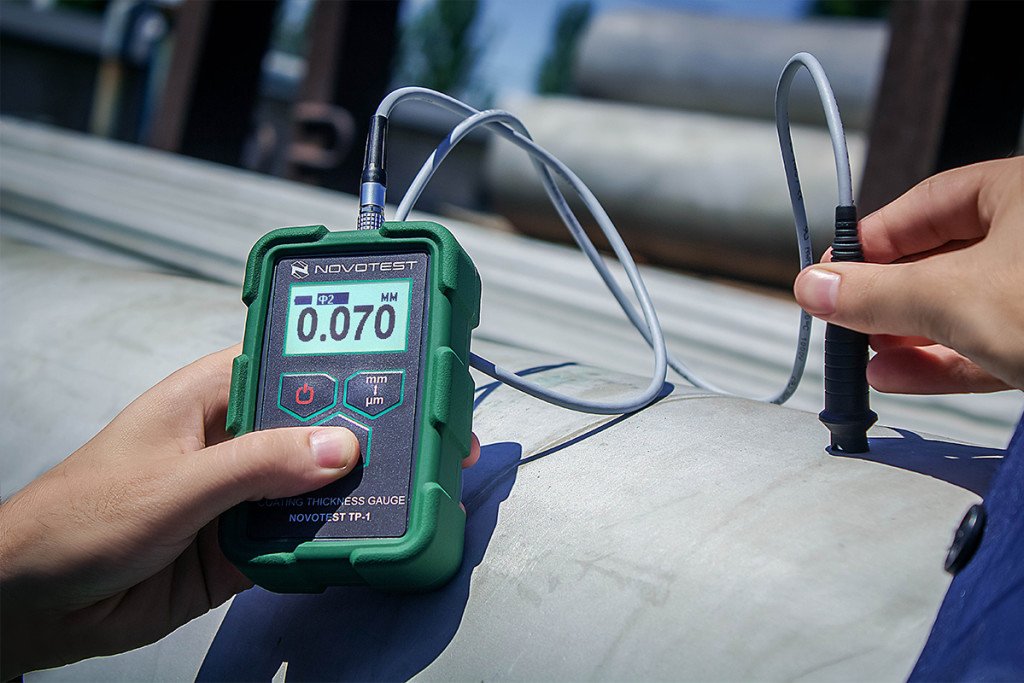Coating Thickness Test
Coating Thickness Test
Several industries, including manufacturing, the automobile, aerospace, and more, rely heavily on coating thickness testing. It entails measuring the coating thickness that has been applied to metal substrates in order to make sure that it satisfies standards for corrosion resistance, durability, and aesthetic appeal.
- Magnetic Induction
- X-Ray Fluorescence (XRF)
- Optical Microscopy

Coating thickness testing is a critical quality control measure in various industries, ensuring that coatings applied to metal substrates meet specific standards and requirements. Here’s an overview of why this testing is crucial in industries such as manufacturing, automobile, aerospace, and more:
Corrosion Resistance:
- Coatings are often applied to metal surfaces to protect them from corrosion. The thickness of the coating is a key factor in determining its effectiveness in preventing exposure to corrosive elements such as moisture, chemicals, and atmospheric conditions.
Durability:
- The durability of coated products is closely linked to the thickness of the applied coating. Adequate thickness ensures that the coating can withstand wear and tear, abrasion, and other environmental stresses over time. This is particularly important in industries where products are subject to harsh conditions.
Aesthetic Appeal:
- In industries such as automotive and aerospace, the appearance of the coated surface is crucial for aesthetic reasons. Maintaining a consistent and appropriate coating thickness helps achieve the desired visual appeal of the final product.
Regulatory Compliance:
- Many industries have strict regulations and standards regarding coating thickness. Compliance with these standards is often a legal requirement, ensuring that products meet safety, environmental, and performance criteria.
Functional Performance:
- Coatings often serve functional purposes beyond aesthetics, such as providing electrical insulation, thermal protection, or anti-fouling properties. The thickness of the coating directly influences its ability to perform these functions effectively.
Cost Efficiency:
- Applying coatings that are too thick can be wasteful and costly. Conversely, insufficient coating thickness may compromise the protective properties. Accurate coating thickness testing helps strike a balance, ensuring cost efficiency while meeting performance requirements.
Various techniques are used for coating thickness testing, including:
- Eddy Current Testing: Measures changes in electrical conductivity induced by the magnetic field of the coating.
- Magnetic Induction: Measures the magnetic field changes as a result of the coating thickness.
- Ultrasonic Thickness Measurement: Uses sound waves to determine the thickness of coatings.
Coating Thickness Test
At OM Metalab Services Pvt Ltd, we precisely carry out coating thickness examinations using specialised tools and methods.
Standard we tested to
| 1 | Metallic Material | Mass of Zinc Coating | IS 6745: 2021, ASTM A90/A90M: 2021 |
